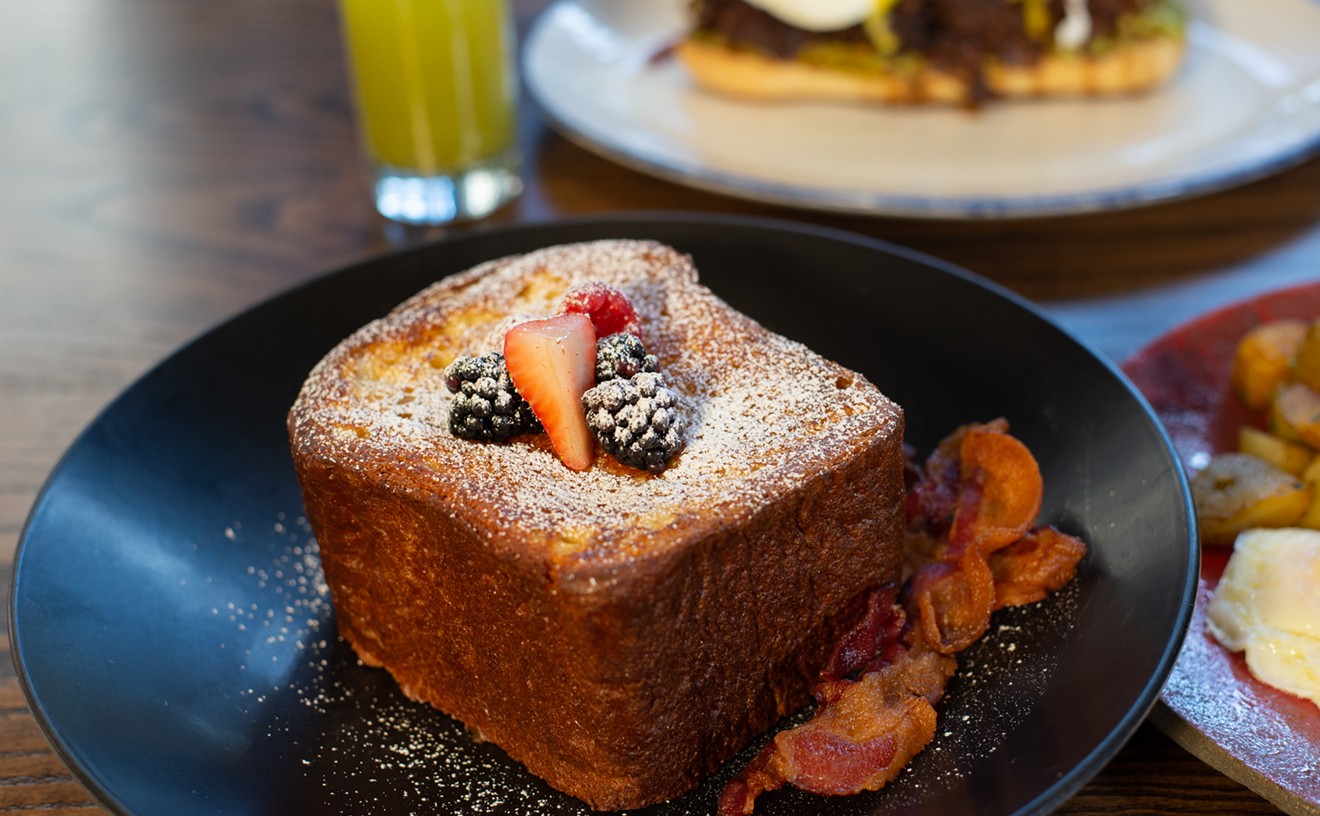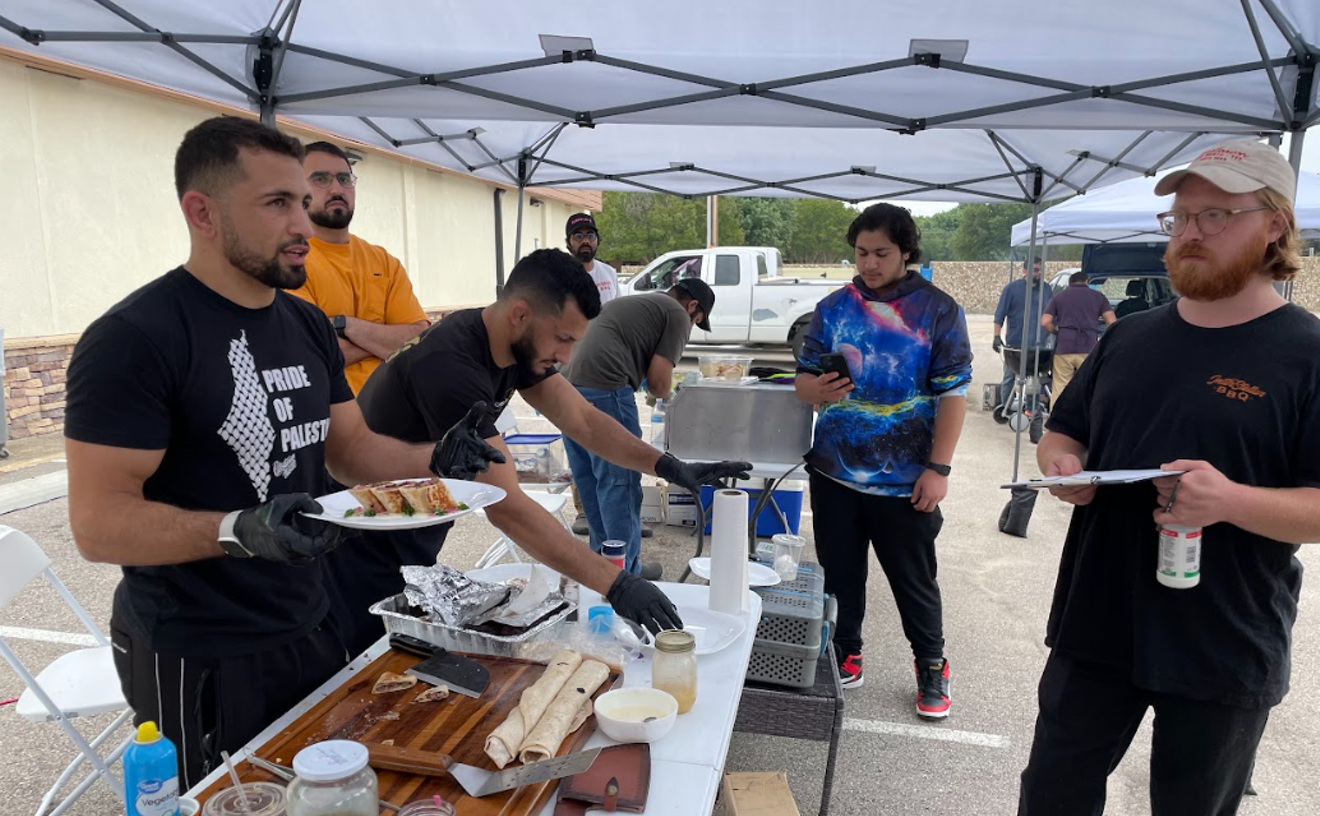In honor of Sunday's sold-out Meat Fight, we're celebrating smoked animal flesh all week long in our inaugural Meat Week, in which we celebrate the procuring, cooking and face-stuffing of dead-animal flesh.
The term "barbecue" holds a lot of different meanings to those who have tasted meat worked by the gentle caress of heat and smoke. Here in Texas, it first evokes brisket cooked low and slow in a bath of carefully calibrated wood smoke under the watchful eye of a meat jockey so sacred he earns the title "pit master." In some parts of Texas, and down into Mexico, barbecue can refer to barbacoa, which is little more than cow's head buried with hot coals until it somehow becomes magical.
The two variations of smoky beef have fanned the flames of the barbecue debate more than once. Texas Monthly's 50 Best Barbecue joints, which was defined as "mainly brisket, ribs, and sausage" by editor Patricia Sharpe, neglected Vera's in Brownsville, which may be the last place in Texas to serve traditional barbacoa. The omission incensed the fans of warm gelatinous cheek meat served in a wispy tortilla. Vera's is a Texas treasure, they argued, and as indicative of barbecue as any smoked brisket.
A similar debate will rage eternal in North Carolina, where the vinegary East versus tangy tomato West rivalry rages eternal. There's the gas-fired versus wood-fired pit debate. There's the pork versus beef debate. With so many arguments smoldering like the amber coals in a steel firebox, the only thing barbecue consistently kindles is passionate discussion.
Outside the States, the barbecue debate takes even more twists and turns, but it abruptly stops in Jamaica, where the undisputed best barbecue in the world has been tended to for centuries. Jerk is everything that every other barbecue has wanted to and might never achieve. Smoky, spicy and laced with enough aromatics as to recall a curry, perfectly jerked meat is a revelation -- no sauce required.
Jerk is meat agnostic, as adept with chicken as it is with pork (though the extra fat in pig makes for particularly delectable barbecue), as delicious in a large restaurant with a beautiful patios as it is on the streets of Kingston.
Jerk is utilitarian. I once watched it prepared in massive pits made of cinderblocks, outfitted with grates that were made from green pimento branches cut from nearby trees. The same branches were dried in the sun and then burned as fuel for the next round of jerk. I watched jerk cooked in steel drums on the beach, fired with more of the same wood and leaves from the same tree for a little extra smoke.
Jerk is locavorism before food snobs turned it into a grocery store label. Ginger, garlic, scotch bonnet chiles, scallions, thyme and allspice -- the dried berries from those same pimento trees -- are all grown on the island and used not for the culinary buzz but because that's what's available. Jamaica is poor. The people of Jamaica eat local because they have to, and they've developed a rich tapestry of ingredients through centuries of conquest and immigration. All of this history, culture and aroma makes its way into jerk.
The results are seriously spicy, intensely smoky and soulful in ways that American barbecue styles are not. There's a brightness from vinegar and fresh chiles and an earthiness from gritty spices that take up smoke. Jerk is a juxtaposition of fiery hot food that conjures a cool ocean breeze. It's a vacation in every bite, and it's the best barbecue in the world.










